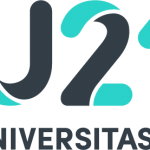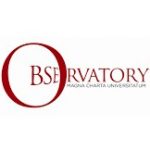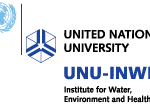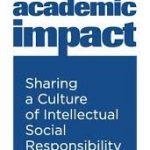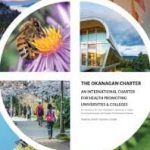Introduction
McMaster University is actively engaged every year in hundreds of international collaborations and partnerships around the world. Examples of these connections include:
- research collaboration
- faculty exchanges
- student exchanges and mobility programs (virtual and physical)
- capacity building initiatives
- joint supervision of doctoral students
- dual degree programs
The Office of International Affairs is an important contact point for individuals, institutions and agencies outside of Canada and international networks seeking to implement meaningful strategic partnerships with McMaster University. For any enquiries, please contact us at oia@mcmaster.ca or +1-905-525-9140, ext. 24700. If you have a specific partnership proposal, we invite you to use the International Agreement Proposal Form below.
Expandable List
Some of the international networks that we are proud to be in partnership with:
Student Exchange and Mobility List
McMaster University maintains a large number of student exchanges and mobility agreements. For further information on applying, incoming students can contact International Student Services and outgoing students can contact Study and Research Abroad in the Student Success Centre.
Delegations & Visitors
If you are seeking or have established a formal institutional or cross-faculty partnership with McMaster University, or are a representative of a foreign government or agency and you wish to visit McMaster University, we invite you to contact us using the form below.
Visits with specific academic departments or faculties can be arranged by directly contacting the department or faculty.
Virtual Global Learning (VGL)
Virtual Global Learning (VGL), also referred to as Virtual Exchange (VE) or Collaborative Online International Learning (COIL), is an instructional model where students are given collaborative tasks in partnership with students from other organizations outside of Canada. This page is intended to assist and guide McMaster faculty who wish to explore and develop VGL within their courses or research projects.
Expandable List
Virtual Global Learning (VGL) refers to a “teaching and learning paradigm that promotes the development of intercultural competence across shared multicultural learning environments.” 1 It “is an approach that brings students and professors together across cultures to learn, discuss and collaborate as part of their class. Professors partner to design the experience, and students partner to complete the activities designed. COIL becomes part of the class, enabling all students to have a significant intercultural experience within their course of study.” 2
Collaborative activities embrace flexibility and innovative practices. They may be a short as 2 weeks (perhaps with only 2 or 3 supervised lessons), they can be between students with shared or different learning outcomes in their respective courses. Assignments or learnings can be demonstrated in text, audio, image or video. Student reflection on intercultural aspects of your VGL program can be foregrounded or balanced with subject-related outcomes. You can develop a program which is appropriate for you, your students and your overall course outcomes.
Note on terminology: “Virtual Exchange” is can be considered the generic term, however “Collaborative Online International Learning (COIL)” appears to be the prevalent term. Other common terms include: “Global Learning”, “Globally Networked Learning”, “Global Virtual Collaboration”, etc. Although there is variation in naming, all essentially refer to the same category of activities.
1 pg.4, Faculty Guide for Collaborative Online International Learning Course Development, retrieved October 2020, https://www.ufic.ufl.edu/UAP/Forms/COIL_guide.pdf, SUNY COIL Center
2 SUNY COIL Center, https://online.suny.edu/introtocoil/suny-coil-what-is/
Benefits for students:
– understand course topics from diverse and intercultural perspectives
– experience the benefits of exchange without the cost and barriers associated with international travel
– enhance employability skills, ie., gain practical experience and micro-credential/digital badging related to collaboration and teamwork in intercultural context
Benefits for faculty members:
– create more deliberative and diverse engagement with course or research topics
– mechanism to develop further faculty connections and partnerships
– meaningful professional development experience
– contribute to the strategic vision of McMaster as an inclusive, diverse and globally-engaged institution
The scalability of VGL allows faculty members to start with small-scale projects and there are many online resources to help you understand the basics and get started. Below are links to some recommended resources:
globalaffairs.ucdavis.edu/global-teaching-learning-resources
If you are interested in starting a VGL program please contact us using the form below.
Through the Office of International Affairs we are able to offer support to our faculty:
- finding and coordinating partnership development;
- developing your course program and activities; and,
- funding and accessing other resources for your VGL programs.
Please use the McMaster Faculty VGL Interest Form, or contact Paul Leegsma at leegsmp @ mcmaster.ca for more information.
Only fill out this form if you are a McMaster University faculty member actively interested starting a VGL project or are looking to find an international partner. If you’re representing another university interested in a VGL collaboration, please contact Paul Leegsma at leegsmp@mcmaster.ca
McMaster Global Ambassador (MGA) Program
McMaster’s Global Ambassador Program supports the university’s global engagement and increases McMaster’s international visibility and presence by leveraging faculty and staff’s international knowledge and expertise to complement existing expertise and activities at the Office of International Affairs (OIA).
The MGA program aims to increase the visibility of McMaster’s international presence and create meaningful connections worldwide. It should also strengthen existing partnerships, open doors for new collaborations, and foster research, academic, and professional opportunities.
Description & Purpose
- Strengthen relationships with existing and potential partner institutions, international organizations, and Canadian embassies around the globe
- Provide faculty and staff an opportunity to become more involved and connected with global engagement initiatives at McMaster and strengthen existing and/or new international partnerships
- Leverage faculty and staff expertise in engaging with existing or potential university partners, delegations, dignitaries, and visitors who come in an official capacity to McMaster’s campus and/or host events in Canada
- Leverage faculty and staff existing international travel by incorporating visits to Canadian embassies, key existing and new partners, and alumni meetings/events
- Broaden MGAs’ connections and networks with official and academic partners in countries/regions of expertise/interest
Role of the MGAs
- Be the voice and face of McMaster:
- Participate in meetings with current or future university partners
- Participate in meetings with Canadian and foreign dignitaries
- Meet with McMaster alumni and prospective students
- Provide advice and context on their country/region of expertise to OIA, recruitment teams, student affairs and other McMaster stakeholders
- When traveling, faculty will commit to
- 1 hour pre-trip meeting (training/orientation)
- 2-4 hours of meeting time on-site (includes travel time)
- 30-minute post-trip meeting
- Share this program opportunity with colleagues
- Will serve a 2-year term (renewable)
Role of OIA
- Create a network of faculty and staff to serve as a resource for future participants in the program, as well as for the University community as a whole.
- Provide training and international professional development opportunities for MGAs:
- All relevant materials
- Training/orientation
- Briefing on international etiquette and protocol
- Logistics/communication assistance (meeting times and locations will be fully arranged by the Office of International Affairs; MGAs are only responsible for arranging their local transportation to/from the meeting location)
- A small stipend in the form of a one-time payment will be issued after the post-trip meeting is conducted (to support expenses such as local transportation associated with the program. This excludes meetings held on McMaster’s campus)
- Connect the MGA with relevant internal parties (e.g., recruitment, alumni)
- MGAs will be recognized annually for University Service
Eligibility and target audience
- McMaster faculty member and/or full-time staff member
- International expertise/interest:
- Have research collaborations in the region/country
- Received their degree and/or have connections with international universities
- Have a solid understanding of the (higher) education system in given countries/regions
- For meetings held internationally, the faculty/staff member must have confirmed travel plans and have secured funding to cover travel expenses
- Endorsement from the direct supervisor
- Approval by the Office of International Affairs
How to become an MGA
- Complete the application form
- Nominated/endorsed by Faculty Deans and Heads of Units
- Approved by the Office of International Affairs – please send completed application forms to oia@mcmaster.ca.


